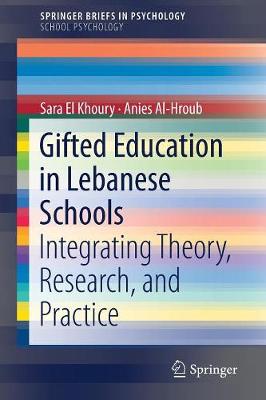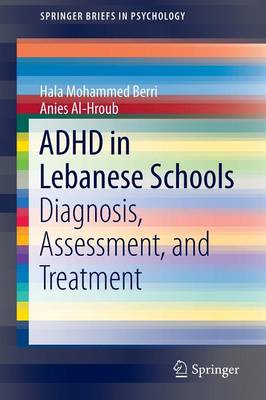SpringerBriefs in School Psychology
2 total works
This Brief discusses research about gifted education in Lebanese schools. It provides an overview of the latest theories, definitions, and practices used to identify gifted students in Lebanese schools. Chapters begin by providing background information on the status of gifted education in Lebanon and the challenges gifted Lebanese children face. Subsequent chapters discuss recent and relevant international definitions of giftedness as well as common misconceptions and underrepresentation of giftedness.
The Brief presents research study findings on the cultural definition of giftedness in the minds of Lebanese teachers. It also presents findings on current practices used to identify gifted learners in Lebanese schools. It concludes with recommendations from the teachers that participated in the reported study as well as the authors' proposal for a Lebanese elementary school policy for identification of gifted students.Gifted Education in Lebanese Schools is an informative resource for researchers, professionals, practitioners, and graduate students in the field of school psychology, educational psychology, gifted and special education, and social work.
- Current procedures for identifying ADHD in Lebanon.
- Lebanese teachers’ knowledge about ADHD, their misconceptions, and factors that influence their opinions.
- Biases toward and confusion about disorders on the basis of perceived gender differences.
- ADHD assessment and implementation strategies for Lebanese special education professionals.
- Research questions, design, and methods as well as data collection and analysis procedures used in the study.
ADHD in Lebanese Schools is an essential resource for researchers, professionals and policymakers, and graduate students in such interrelated fields as school psychology, educational psychology, and social work.

